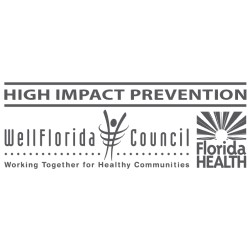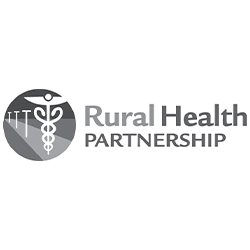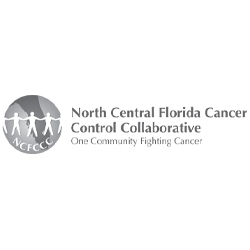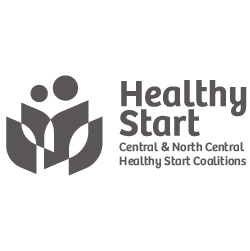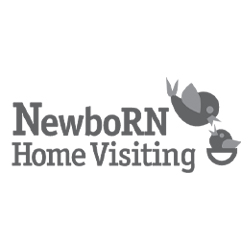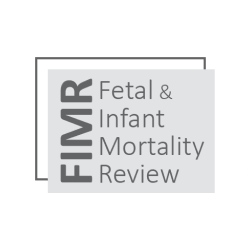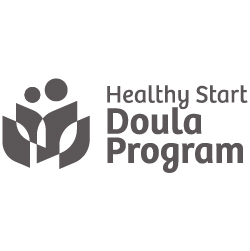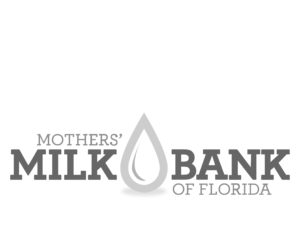Team Florida
Explore Magazine
By Joseph Kays
David Nelson is a team player.
“I’ve always enjoyed team sports,” Nelson says, “Growing up, I hated cross country, I hated swimming. I played basketball and volleyball and focused most on soccer.”
He played soccer so well that he had his sights set on the U.S. Olympic team until an injury derailed that dream and put him on the road to medical school.
Today, Nelson is captaining UF’s efforts to build teams that are changing the way Florida and the nation move new medical advances from laboratories to hospitals and doctors’ offices in the fastest, most efficient way.
As director of UF’s Clinical and Translational Science Institute, or CTSI, he’s helping to move clinical trials into the 21st century, where massive investments in electronic health records and big data are now making it possible for doctors and patients and pharmaceutical companies and government agencies to get a much better understanding of which drugs and devices are the safest and most effective for which patients, at a fraction of the cost and time.
Since 2009, the CTSI has received two awards totaling more than $42 million through the national Clinical and Translational Science Awards program, which is led by the National Center for Advancing Translational Sciences of the NIH.
The National Institutes of Health define clinical trials as “research studies that explore whether a medical strategy, treatment, or device is safe and effective for humans.”
Over the past half century, regulations aimed at ensuring these trials are conducted safely and ethically and that the results are free of bias, either accidental or intentional, have caused them to become ever more complicated and expensive.
At the same time, the explosion in growth of new drugs and devices has resulted in a simultaneous expansion in the number of trials. Since 2000, when NIH initiated its online submission process called clinicaltrials.gov, there have been nearly 207,000 studies registered.
“The current clinical trials infrastructure in the United States is broken,” Nelson says. “The cost of a clinical trial has outpaced inflation by four fold in the last decade, and the number of patients being enrolled per dollar has decreased significantly. So we’re spending more and more money to enroll fewer and fewer patients.”
At a 2009 workshop on clinical trials hosted by the National Academy of Medicine a number of participants lamented that most clinical trials are conducted in a “one-off” manner, meaning “the necessary components of a trial … are brought together for a discrete period of time and disbanded once the trial is completed,” according to the workshop report.
“Some workshop attendees suggested that efficiencies could be gained by streamlining the clinical trials infrastructure so that those investigating new research questions could quickly draw on resources already in place instead of reinventing the wheel for each trial,” the report continued.
And that’s exactly what Nelson and his colleagues are doing.
CTSI was established in 2008 shortly before the Affordable Care Act began requiring U.S. health-care providers to move toward electronic medical records. Nelson says the requirement, and the hundreds of millions of dollars of economic stimulus money that went to support it, have had a profound impact on the system.
“UF Health spent more than $100 million to put in our electronic health records system, and that investment has occurred throughout the country at most academic health centers,” he says. “But now we’re able to electronically capture things like medication, adverse events, clinical outcomes that we couldn’t track before.”
And that has resulted in the opportunity to change the way clinical trials are conducted, allowing researchers to collect all manner of data during the regular course of health care, in doctors’ offices and hospitals.
Among the innovative programs Nelson and his colleagues in the institute have put together over the last eight years are:
Personalized Medicine – uses genetic testing to identify the best medication for patients.
OneFlorida Clinical Research Consortium – links UF with other universities, health systems and patients around the state to address health challenges like concussion screening, hypertension and teen smoking.
HCV-TARGET – tracks hepatitis C patients worldwide to determine the best treatment options.
“All of these efforts are really about building populations of people whose electronic health record data can be used to do clinical research, either at a disease specific level, like hepatitis C, which has been my own research interest, or at a population level, like in the state of Florida,” Nelson says.
Getting Personal
Nelson says the first opportunity to test the way rapid advances in electronic health records and big data could be applied to translational research came when College of Pharmacy Dean Julie Johnson proposed moving genomics research on which she’d been working for a decade into the real world.
“It all started with our personalized medicine program,” he says. “Julie came to me and said ‘I think we can do something really unique about taking science and translating it into health care.’”
Johnson and her colleagues in the UF Center for Pharmacogenomics had spent years identifying genes that impacted how different people respond to certain heart medications.
In mid 2012, UF Health began doing a simple genetic test for interventional cardiology patients. The test indicates whether an individual is among the about 30 percent who don’t respond to an anti-clotting drug commonly prescribed following a catheterization for blocked heart vessels.
Last November, Johnson and Associate Professor Larisa Cavallari reported at a meeting of the American Heart Association that the risk of major cardiovascular problems such as death, heart attack, stroke or blocked stent was significantly reduced among patients with the genetic variation who were prescribed an alternative drug.
In addition to preventing medical complications and saving lives, genotyping has significant implications for the business side of health care. According to the federal Agency for Healthcare Research and Quality, in 2012 the average expenditure per person for heart conditions was $4,852 per person. Simple genotyping that costs several hundred dollars can prevent a heart attack by getting a patient on the correct medication early.
“You don’t have to prevent a lot of heart attacks to achieve a cost savings,” Johnson says.
In 2013, NIH awarded the program $3.7 million to implement genotype-guided therapy for other medications. The funding also expands the program to community-based physician practices and health systems in Florida.
“UF Health was the perfect testing ground for understanding how to execute the program and get it to work,” Nelson says. ”The University of Florida was our petri dish for experimenting and figuring out how to, in this case, implement genomic medicine into healthcare.”
OneFlorida
The success of the Personalized Medicine Program inspired Nelson and his colleagues to pursue opportunities to tap into even larger pools of patients.
“There are a lot of questions you can answer with 10 patients or a hundred patients, but some studies require thousands to hundreds of thousands of patients,” Nelson says, “so to really look at long-term outcomes in larger populations we needed partners who have similar aspirations and goals to the University of Florida.”
CTSI researchers had begun collaborating with the FSU College of Medicine in 2009 on two initiatives that leveraged FSU’s distributed medical school model, which places medical students at six regional campuses around the state, where they interact with patients in a more rural community-based healthcare environment than UF Health.
By 2013, CTSI also was ready to expand its statewide initiatives, so it also partnered with the University of Miami, Orlando Health, Florida Hospital, Health Choice Network, Bond Community Health Center Inc., Tallahassee Memorial Regional Health System, Miami Children’s Health System and WellFlorida Council to create OneFlorida. The Florida Department of Health and the Florida Agency for Health Care Administration are also collaborators.
Among the initiatives OneFlorida is developing to streamline clinical trials are a statewide Institutional Review Board to evaluate all projects involving human subjects and a statewide consent form so patients can authorize their medical data to be used for research by all the partners.
“Eventually we can follow outcome data in 10 million patients that is linked to inpatient and outpatient health records, data from the DOH on vital statistics, and billing data to really think about a whole new way o do large, population-based studies very efficiently,” Nelson says.
The success of OneFlorida led to another award of more than $7.5 million from the Patient-Centered Outcomes Research Institute, or PCORI, to integrate OneFlorida into a national initiative called PCORnet that includes 13 clinical data research networks nationwide.
The OneFlorida Clinical Research Consortium includes 22 hospitals, 914 clinical practices and 4,100 physicians, providing care for close to 40 percent of Floridians.
This grant is lead by Betsy A. Shenkman, co-director of the CTSI, and William Hogan, the CTSI’s director of biomedical informatics.
OneFlorida initially will focus on high blood pressure, teen smoking and two rare genetic diseases, Duchenne muscular dystrophy and Phelan-McDermid syndrome.
The Florida consortium also will contribute to the national network by allowing researchers access to more than 10 million deidentified and secure health care records through the OneFlorida Data Trust, so they can locate individuals who wish to participate in research and conduct studies more efficiently.
Hep C
Just as Johnson has spent a good deal of her career working on personalized medicine, Nelson has spent his working on hepatitis C, an insidious virus that quietly destroys the liver. Because carriers can have it for years with no symptoms, an estimated 150-170 million people around the world now have it, including an estimated 3.5 million in the U.S.
Hepatitis C wasn’t even identified until 1989, so research on it was still in its infancy when Nelson graduated from residency in 1993 and secured a fellowship at UF, where hepatitis C pioneer Gary Davis was building a research program.
“I was fortunate to have started in this field just as the virus had been discovered,” Nelson says. “At that point there were no treatments. It is amazing that in a little over two decades we have evolved from discovery of a virus and massive worldwide disease to a curative therapy for most patients.”
Today, there are several different drugs available that can cure patients of the disease in as little as 8 to 12 weeks, with few side effects. But with these cures come new questions — which of these drugs works best on which patients, and how do we ensure that everyone who needs these expensive drugs has access to them.
“Because so many people were sick and dying from hepatitis C, the FDA fast-tracked the approval of many of these new drugs,” Nelson says. “The field moved so quickly that it didn’t provide doctors and patients with all the data they needed to make fully informed decisions.”
Thanks to their work in the CTSI, Nelson and his colleagues understood that they could use electronic health data to compare and contrast treatment outcomes for large populations of hepatitis C patients.
So Nelson and his colleague Dr. Michael W. Fried at UNC-Chapel Hill created HCV-TARGET, a collaboration among 104 academic and community sites in 31 states, Puerto Rico, Canada and Europe, as well as partnerships with multiple industry sponsors, the U.S. Food and Drug Administration and the patient advocacy community.
In 2011, HCV-TARGET established a national registry to observe patients undergoing hepatitis C treatment and coordinate real-world monitoring on a national scale for new therapies as they enter the market. To date, HCV-TARGET sites have enrolled more than 8,000 patients and garnered over $30 million in support from leading pharmaceutical companies, including Abbvie, Bristol-Myers Squibb, Genentech, Gilead, Janssen, Merck and Vertex.
The success of HCV-TARGET also led to a $15.48 million award last October from PCORI to study the effectiveness of three medications used to treat hepatitis C.
Nelson is leading the five-year, randomized clinical trial to compare the recently approved oral medications to determine if one of them is more effective at curing hepatitis C. Partners include the Johns Hopkins University, the University of North Carolina and the University of Michigan. About 3,750 patients at approximately 36 sites nationwide will be randomly assigned one of the medications.
Researchers also hope to learn more about the drugs’ side effects and whether they work equally well in real-world conditions when used by a diverse group of patients that includes minorities and people with other medical conditions.
“There is not a single study in the world right now that has compared any of these all-oral therapies against each other. These drugs are already in use, so we want to understand their safety and effectiveness and how they’re working in diverse populations,” Nelson says.
Nelson estimates that by studying the efficacy of the three drugs as part of the normal course of the patients’ health care, they’ll be able to cut the per-patient cost of the clinical trial from $28,000 to $1,000.
Nelson says the pharmaceutical companies get very important safety and regulatory data on their drugs that can be submitted to the Food and Drug Administration; physicians, patients, health care systems and insurance providers get very quick data on how safe and effective the drugs are; and the FDA gets the best safety and performance data available.
“It’s one of those rare things where every stakeholder wins.”
Nelson says that with all these projects, Florida offers a crystal ball for the rest of the country.
“Because of our unique diversity and demographics, we can study diseases and challenges today that the nation as a whole will face 10 years down the road,” he says. “So Florida is an ideal place to solve some of these challenges.”
Back to News page
